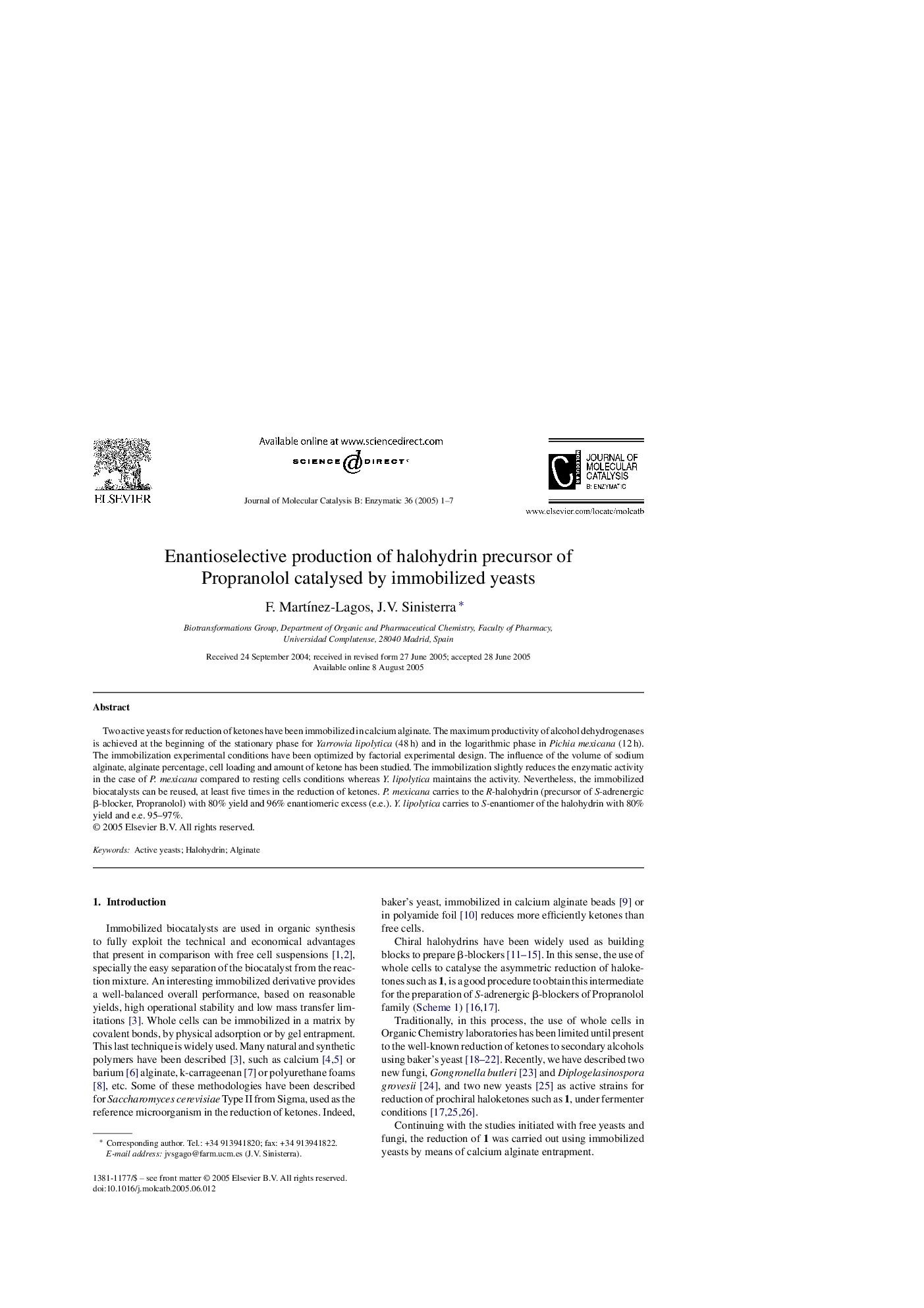| Article ID | Journal | Published Year | Pages | File Type |
|---|---|---|---|---|
| 9616714 | Journal of Molecular Catalysis B: Enzymatic | 2005 | 7 Pages |
Abstract
Two active yeasts for reduction of ketones have been immobilized in calcium alginate. The maximum productivity of alcohol dehydrogenases is achieved at the beginning of the stationary phase for Yarrowia lipolytica (48 h) and in the logarithmic phase in Pichia mexicana (12 h). The immobilization experimental conditions have been optimized by factorial experimental design. The influence of the volume of sodium alginate, alginate percentage, cell loading and amount of ketone has been studied. The immobilization slightly reduces the enzymatic activity in the case of P. mexicana compared to resting cells conditions whereas Y. lipolytica maintains the activity. Nevertheless, the immobilized biocatalysts can be reused, at least five times in the reduction of ketones. P. mexicana carries to the R-halohydrin (precursor of S-adrenergic β-blocker, Propranolol) with 80% yield and 96% enantiomeric excess (e.e.). Y. lipolytica carries to S-enantiomer of the halohydrin with 80% yield and e.e. 95-97%.
Keywords
Related Topics
Physical Sciences and Engineering
Chemical Engineering
Catalysis
Authors
F. MartÃnez-Lagos, J.V. Sinisterra,
